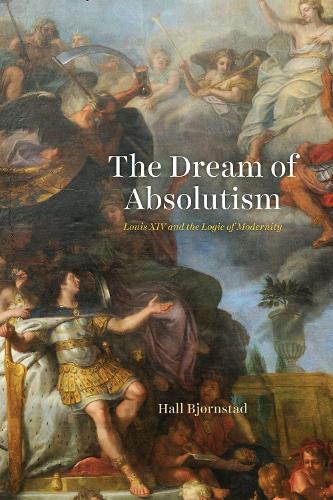Full Product Details
Author: Hall Bj?rnstad
Publisher: The University of Chicago Press
Imprint: University of Chicago Press
ISBN: 9780226803661
ISBN 10: 022680366
Pages: 248
Publication Date: 15 October 2021
Audience:
General/trade
,
General
Format: Hardback
Publisher's Status: Active
Availability: Out of stock

The supplier is temporarily out of stock of this item. It will be ordered for you on backorder and shipped when it becomes available.
Reviews
Eschewing the comfort of critical distance for the disarming rapture of intimacy, this book immerses us in the dream of absolutism. In this endlessly evocative tour of political theology at Versailles, Bjornstad guides us through a virtual hall of mirrors composed of the texts, images, and environments that reflected and magnified the glory of Louis XIV. Practicing a form of reading backlit by the premodern virtues of dignity and decorum, Bjornstad asks us to face the past in the originality of its most intense and disturbing commitments and he urges us to recognize our own captivation by a fantasy of power that remains with us today. -- Julia Reinhard Lupton, author of 'Shakespeare Dwelling: Designs for the Theater of Life' With grace and humor to match its inventiveness and deep learning, Bjornstad's new book turns scholarly consensus about the absolutist culture of the age of Louis XIV on its head. We have grown used to mining the art, literature, and philosophy of the period for critical awareness of absolutism's inevitable defeat. Bjornstad demonstrates that, on the contrary, absolutism was the self-defeating dream of elite culture as a whole, a fantasy of unequaled national as well as royal glory that planted the seeds for absolutism's overthrow less by exposing its irrationality than by nourishing collective delusions of grandeur that could never be realized. -- Christopher Braider, University of Colorado at Boulder The Dream of Absolutism is a probing, innovative, scintillating, and daring anthropology of seventeenth-century French political aesthetics. It advocates for a specific way of reading texts, images, and archives in order to apprehend what monarchy, representation, and politics might have meant when understood on their own terms, stripped of all the ideological freight laid upon these concepts in the aftermath of the eighteenth century. By reading texts that are both at the center of seventeenth-century monarchical design and yet either neglected, forgotten, misread, or newly uncovered by scholars, Bjornstad's excavates a new seventeenth-century monarchism. -- Juliette Cherbuliez, University of Minnesota
With grace and humor to match its inventiveness and deep learning, Bjornstad's new book turns scholarly consensus about the absolutist culture of the age of Louis XIV on its head. We have grown used to mining the art, literature, and philosophy of the period for critical awareness of absolutism's inevitable defeat. Bjornstad demonstrates that, on the contrary, absolutism was the self-defeating dream of elite culture as a whole, a fantasy of unequaled national as well as royal glory that planted the seeds for absolutism's overthrow less by exposing its irrationality than by nourishing collective delusions of grandeur that could never be realized. -- Christopher Braider, University of Colorado at Boulder The Dream of Absolutism is a probing, innovative, scintillating, and daring anthropology of seventeenth-century French political aesthetics. It advocates for a specific way of reading texts, images, and archives in order to apprehend what monarchy, representation, and politics might have meant when understood on their own terms, stripped of all the ideological freight laid upon these concepts in the aftermath of the eighteenth century. By reading texts that are both at the center of seventeenth-century monarchical design and yet either neglected, forgotten, misread, or newly uncovered by scholars, Bjornstad's excavates a new seventeenth-century monarchism. -- Juliette Cherbuliez, University of Minnesota
The Dream of Absolutism is a probing, innovative, scintillating, and daring anthropology of seventeenth-century French political aesthetics. It advocates for a specific way of reading texts, images, and archives in order to apprehend what monarchy, representation, and politics might have meant when understood on their own terms, stripped of all the ideological freight laid upon these concepts in the aftermath of the eighteenth century. By reading texts that are both at the center of seventeenth-century monarchical design and yet either neglected, forgotten, misread, or newly uncovered by scholars, Bjornstad's excavates a new seventeenth-century monarchism. -- Juliette Cherbuliez, University of Minnesota
Author Information
Hall Bjørnstad is associate professor of French at Indiana University, Bloomington, where he also directs the Renaissance Studies Program. He is the author of a monograph on Blaise Pascal, coeditor of Walter Benjamin’s Hypothetical French Trauerspiel and Universal History and the Making of the Global, and the editor of Borrowed Feathers: Plagiarism and the Limits of Imitation in Early Modern Europe.




